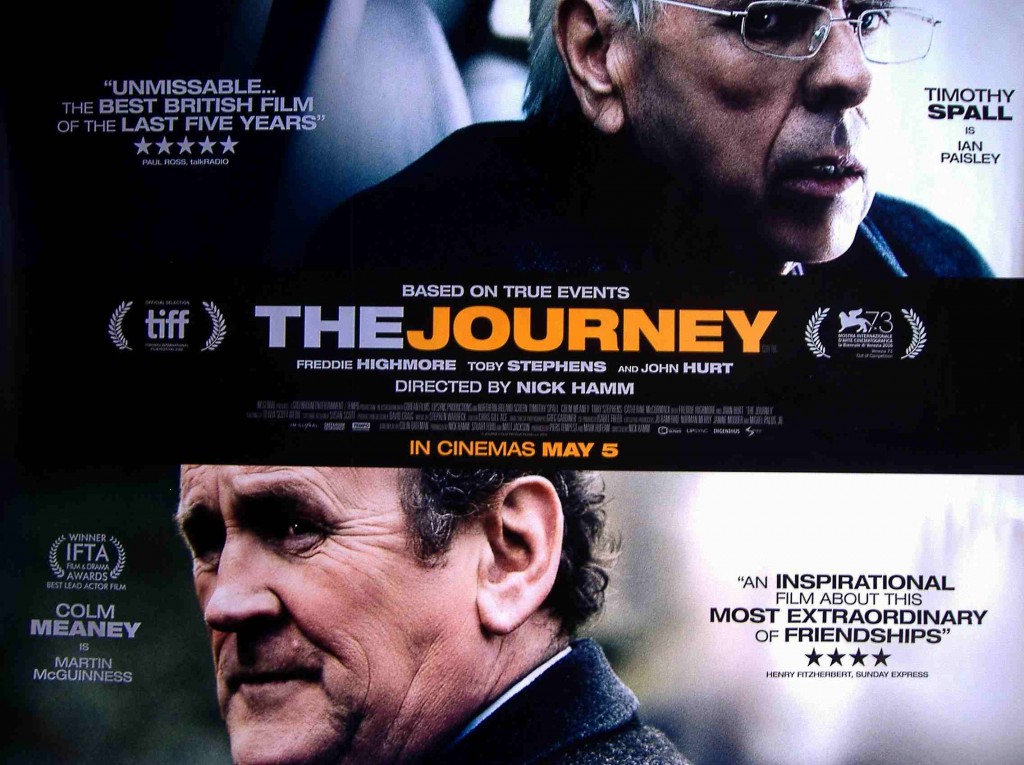Susan Granger’s review of “The Journey” (IFC Films)
Perhaps better suited to the History Channel, this film imagines a car ride during which Ireland’s sworn enemies, Ian Paisley (Timothy Spall) and Martin McGuiness (Colm Meaney), began to communicate after decades of hostility and violence in Northern Ireland.
In October, 2006, while trying to work out what became known as the St. Andrews Agreement, Rev. Paisley needed to fly from the famed Scottish golf resort to Belfast to celebrate his Golden Wedding anniversary with his wife. For security reasons, McGuiness insists on accompanying him.
As various mishaps and delays lengthen the time it takes to make 50-mile trip to the Edinburgh airport, the lifelong adversaries begin to converse for the first time.
Taking a conciliatory position, garrulous McGuiness, the former Irish Republican Army leader, initiates their interaction. At first, Paisley, the crusading 80 year-old founder of the Democratic Unionist Party, is overtly confrontational, exuding moral superiority. Eventually, his stern countenance softens, along with his vehemently anti-Catholic rhetoric.
What they don’t realizes is that their young Scots chauffeur (Freddie Highmore) is actually an undercover British agent, charged with monitoring their private conversation which is being watched via a secret camera by MI-boss Harry Patterson (John Hurt) and Prime Minister Tony Blair (Toby Stephens).
Scripted by Colin Bateman and directed by Nick Hamm – with memorable performances from both Spall and Meaney – it provides an imaginative look at the background leading up to the assumption of power by First Minister Ian Paisley and Deputy First Minister Martin McGuinness in 2007.
In reality, Paisley’s wife Eileen was with him at St. Andrews; he and McGuinness did not actually begin to dialogue with one another until six months after the Agreement was signed.
On the Granger Mo vie Gauge of 1 to 10, “The Journey” is a simplistic 6, giving the impression of eavesdropping on a historic conversation.

